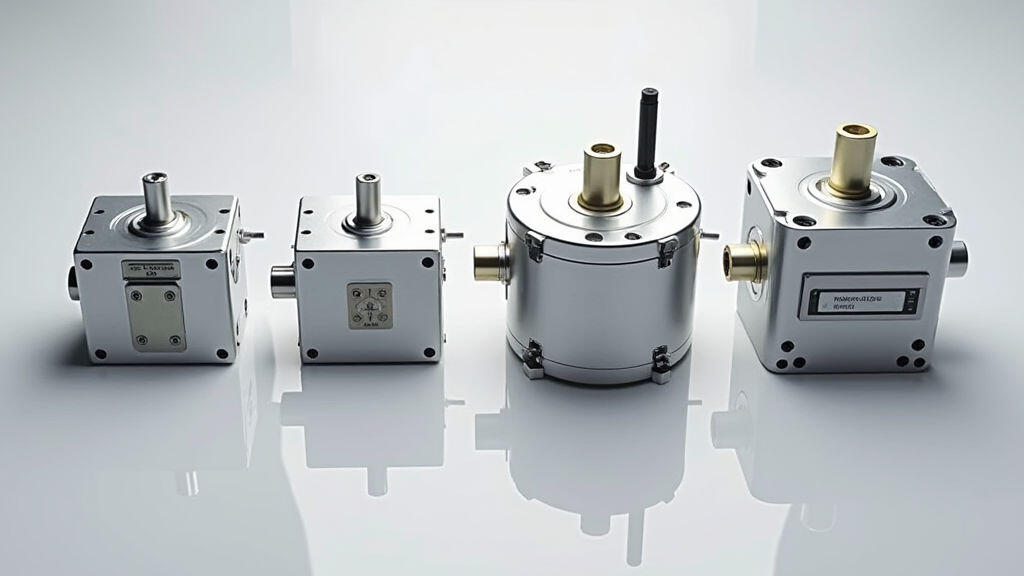
The food processing industry is undergoing a rapid transformation. Driven by consumer demand for higher quality, safer, and more personalized products, manufacturers are relentlessly seeking ways to enhance efficiency, maintain strict hygiene standards, and minimize waste. A critical, yet often overlooked, component in this evolution is the micro DC gear motor. These tiny powerhouses are increasingly being scrutinized and optimized for performance, driven by a confluence of technological advancements, stringent regulatory requirements, and the rising costs of energy. This article explores the key reasons why food processing manufacturers are placing such a premium on micro DC gear motor performance optimization.
Micro DC gear motors are integral to a vast array of applications within food processing facilities. They are found in:
The trend towards increased automation, spurred by labor shortages and the need for higher throughput, has dramatically amplified the demand for these motors. The market for micro DC gear motors in food processing is projected to grow significantly in the coming years, with analysts forecasting a Compound Annual Growth Rate (CAGR) of over 6% between 2023 and 2028, according to a recent report by Market Research Future. [Insert data source link here – e.g., Market Research Future, Grand View Research].

While micro DC gear motors have been a mainstay in food processing for years, the industry is now demanding more – demanding optimized performance. This optimization focuses on several key areas:
1. Enhanced Hygiene and Sanitation: The food industry operates under incredibly strict hygiene standards, dictated by organizations like the FDA (Food and Drug Administration) and HACCP (Hazard Analysis and Critical Control Points). Micro DC gear motors must be able to withstand frequent cleaning and sterilization processes without compromising performance or integrity.
2. Energy Efficiency and Cost Reduction: Energy costs are a significant operational expense for food processing facilities. Optimizing motor performance translates directly into lower energy consumption and reduced operational costs.
3. Reliability and Durability: Food processing environments are often harsh, with exposure to dust, moisture, and extreme temperatures. Motors need to be robust and reliable to minimize downtime and prevent costly repairs.
4. Precise Motion Control: Many food processing tasks require exceptionally precise motion control – whether it's dispensing a specific amount of ingredient or positioning a component with micron-level accuracy.
Several technological advancements are fueling the drive for micro DC gear motor performance optimization:

MES-Drive is at the forefront of micro DC gear motor performance optimization. We specialize in developing and manufacturing high-performance motors designed specifically for the food processing industry. Our motors incorporate advanced BLDC technology, precision gear designs, and sophisticated control algorithms to deliver superior efficiency, reliability, and hygiene. MES-Drive offers a range of solutions, including custom motor designs and integrated control systems, to meet the specific needs of our clients. Our commitment to quality and innovation has made us a trusted partner for leading food processing manufacturers worldwide.
The increasing focus on micro DC gear motor performance optimization in food processing is not just a trend; it's a fundamental shift driven by evolving industry demands. Manufacturers are realizing that optimized motor performance is essential for enhancing quality, reducing costs, and ensuring compliance with stringent regulatory requirements. As technology continues to advance, we can expect to see even greater innovation in this field, with a focus on greater automation, increased energy efficiency, and improved hygiene. The rise of IoT and predictive maintenance will further transform the way micro DC gear motors are used and maintained, unlocking new levels of performance and reliability. MES-Drive is well-positioned to lead this transformation, providing the cutting-edge solutions that food processing manufacturers need to thrive in today's competitive market. The convergence of advanced motor technology, intelligent control systems, and data-driven insights will pave the way for a more efficient, sustainable, and resilient food processing industry in the years to come.
Leave A Reply
Your email address will not be published. Required fiels are marked